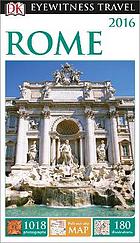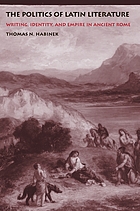 Rome
by
Olivia Ercoli, Ros Belford, Roberta Mitchell
Rome
by
Olivia Ercoli, Ros Belford, Roberta Mitchell
 The Politics of Latin Literature
by
Thomas N. Habinek
The Politics of Latin Literature
by
Thomas N. Habinek
